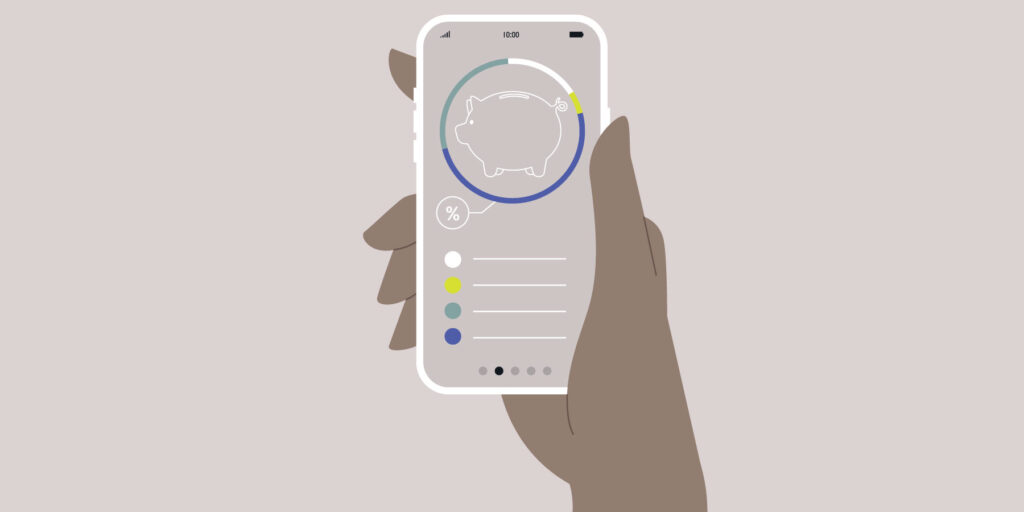**Update: In January 2023, the IRS announced a delay of the new regulation requiring third-party settlement organizations (TPSOs) like PayPal to provide taxpayers with a 1099-K if they earn more than $600 through TPSO apps or platforms. The new policy will now take effect for transactions that occur after the 2022 calendar year.**
There are two absolutes in life that are famously inescapable. One is death—I know, grim. The second is, of course, doing your taxes—perhaps equally as grim.
But you can add a third unmovable fact to that list, and that’s the certainty of annual changes to the tax code. Much to the dismay of self-employed professionals everywhere, the IRS likes to mix things up—frequently. And thanks to the nature of our work (1099s galore), freelancers tend to have a more complicated tango with the tax man.
Case in point: the latest rule regarding payments facilitated by third-party money apps like PayPal, Cash App, and Venmo. These platforms, which are popular among gig economy workers and freelancers, have a few new tax tricks up their sleeve.
Here’s everything you need to know about the new policy and how to get ahead of it for your 2022 taxes.
What’s the new rule—and what does it mean for me?
It used to be that if you were paid through a third-party payment provider, you’d only receive official tax documents for said income if you met two criteria:
- If you received more than 200 separate commercial transactions annually.
- If the combined total of those gross payments exceeded $20,000.
That substantial sum excluded many people from receiving official tax forms for these types of transactions. But thanks to a provision snuck into the American Rescue Plan, stimulus legislation that went into effect in 2021, this policy has changed as of January 1, 2022. Now, that former $20,000 limit has been lowered to just $600.
The bottom line: if you’re a Contently freelancer—or have an Etsy shop, resell Birkin bags on Poshmark, or rent out a property on Airbnb—and you get paid more than $600 via payment app in 2022, expect to receive one or more Forms 1099-K early next year.
But if you’re getting paid on these apps for commercial transactions—outlined by PayPal as “buying and selling goods and services, or payments received when you ‘request money’ using PayPal Services”—don’t think that you’ll be able to slink by Uncle Sam. According to PayPal, “The IRS will be able to cross-reference both our report and yours.”
Zelle, another popular digital payments network, does not appear to be impacted by the new policy. Early Warning Services, which operates the platform, told the Washington Post that “payments between friends and family and eligible small businesses sent through the Zelle Network are not subject to this law because Zelle facilitates messaging between financial institutions, but does not hold accounts or handle settlement of funds.”
What can freelancers do to be proactive?
What’s the timing of all this? The good news is that the change doesn’t apply to federal tax returns for your 2021 income. But throughout 2022, make sure you’re keeping track of all that Cash App income: you’ll need to report the earnings from this calendar year next spring.
It’s worth noting that this new policy doesn’t actually change freelancers’ tax obligations—they should have been reporting this income to the IRS all along.
But the new rule might make things a bit more complex for, say, people who use a single PayPal account for both personal and business transactions. Another potential complication is that some freelancers may end up receiving forms for a single project from both their clients and third-party payment providers—but don’t worry, this doesn’t mean you’ll owe double the tax. You’ll simply need to keep a hawk-eye on all your tax forms to ensure there’s no overlap.
Here are a few things you can do now to be proactive about preparing your 2022 tax return:
- Keep diligent records of all payments, especially those you receive via third-party payment providers like PayPal, Cash App, Venmo, etc. On Contently, you can track payments in the “Your Account” > “Activity” section of your profile.
- Consider using a digital recordkeeping system to track receipts and other important forms that document your income from all clients and sources.
- If you don’t already have a separate business account set up on one of these providers, consider opening one.
- If you plan to use a personal account for both business and everyday expenses, educate your friends and family members about how to correctly tag personal transactions when sending funds. On PayPal, for example, they’ll need to select “send money to friends and family” versus “pay for goods and services.” Anything that’s incorrectly tagged may count toward that $600 limit.
Working with a tax professional* can help give you peace of mind about this process.
Freelancers can learn more about this policy change on the IRS’s official website and on sites like Freelancers Union.
Contently’s editorial staff contributed additional reporting to this story.
*Disclaimer: This content is for general educational purposes only. We are not financial advisors, and the information here is not intended to provide specific legal or tax advice for any individual.
